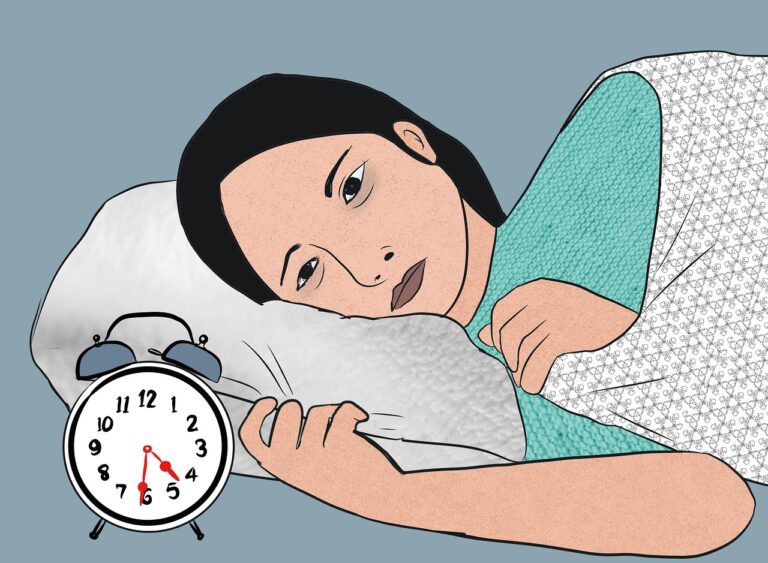Does Magnesium Help You Sleep?

In this enlightening exploration into the benefits of magnesium for sleep, you’ll uncover the transformative potential of this vital mineral, revered for its ability to enhance the quality of rest. Nestled within the compassionate care at Vector Sleep Clinic, where the dual demons of sleep disorder and daytime fatigue meet their match, the discourse on magnesium stands out as a beacon of hope. As you navigate the challenges of modern life that often lead to sleepless nights, the question of whether magnesium can be the key to unlocking the magic of restful nights takes center stage, promising a journey toward rejuvenation and optimal health.
Understanding Sleep and Its Importance
Sleep is not just a passive state of rest, but a complex, essential process that affects nearly every aspect of your health and daily life. Understanding the science of sleep, the consequences of poor sleep, and how good sleep can benefit your overall health and wellbeing is crucial.
The Science of Sleep and Its Stages
The science of sleep is fascinating. During sleep, your body goes through several stages, including REM (rapid eye movement) and non-REM stages. Each stage plays a critical role in restoring and rejuvenating your body and brain for the day ahead.
Consequences of Poor Sleep
Poor sleep can have immediate as well as long-term consequences on your health. It can affect your mood, memory, and judgment and raise your risk for chronic illnesses like heart disease and diabetes. Furthermore, it can impair your reaction time and lead to increased accidents and injuries.
How Sleep Benefits Overall Health and Wellbeing
Adequate sleep is like a cornerstone for your overall health. It helps repair your heart and blood vessels, supports growth and stress management, improves your immune function, and enhances memory. Basically, good sleep is foundational for both your physical and mental health.
Magnesium: An Overview
Magnesium is much more than just a mineral; it’s a crucial element that plays numerous roles in your body’s functioning.
What is Magnesium and Its Role in the Body
Magnesium is a vital mineral that supports over 300 biochemical reactions in your body. It helps manage nerve and muscle functions, maintains heart rhythm, supports a healthy immune system, and keeps bones strong. It even aids in regulating blood glucose levels and production of energy and protein.
Sources of Magnesium
You can find magnesium in a variety of foods, such as green leafy vegetables, nuts, seeds, and whole grains. Certain mineral waters also contain magnesium. It’s relatively easy to include sources of magnesium in your diet if you are mindful of your food choices.
Symptoms of Magnesium Deficiency
Despite its abundance in various foods, magnesium deficiency is not uncommon and can lead to symptoms such as muscle twitches and cramps, mental disorders, fatigue, and high blood pressure, among others. It’s crucial to be aware of these signs as magnesium deficiency can significantly affect your health.
Magnesium and Sleep Connection
The relationship between magnesium and sleep is an area of growing interest and research.
How Magnesium Affects Sleep
Magnesium plays a role in supporting deep, restorative sleep by maintaining healthy levels of GABA, a neurotransmitter that promotes sleep. Magnesium’s muscle-relaxing properties can also contribute to a feeling of calm and improve sleep quality.
Scientific Evidence Supporting Magnesium’s Role in Improving Sleep Quality
Various studies have suggested that magnesium supplementation can improve sleep quality, especially in those with sleep disorders. It appears magnesium’s role in supporting sleep is multifaceted, from decreasing cortisol levels to regulating the sleep hormone melatonin.
Magnesium’s Impact on Sleep Disorders
For people suffering from sleep disorders, such as insomnia, restless leg syndrome, or obstructive sleep apnea, magnesium might offer some relief. The mineral may help alleviate symptoms of these disorders, promoting better sleep and, subsequently, better health.
Benefits of Magnesium for Sleep
Magnesium has several potential benefits for sleep, supporting its role as a valuable supplement for those looking to improve their sleep quality.
Improving Sleep Efficiency
Magnesium may help enhance the efficiency of sleep by enabling you to fall asleep faster and spend more time in the restorative stages of sleep, leading to a more restful night.
Reducing Symptoms of Insomnia
For those experiencing insomnia, magnesium supplementation may reduce the symptoms, helping you get more consistent, quality sleep.
Alleviating Restless Leg Syndrome
Magnesium can potentially alleviate the symptoms of Restless Leg Syndrome (RLS), a common hindrance to falling asleep, by relaxing the muscles and reducing leg discomfort.
Regulating Sleep Patterns
By helping to regulate melatonin and support the body’s circadian rhythms, magnesium can play a vital role in establishing and maintaining regular, healthy sleep patterns.
How to Use Magnesium for Better Sleep
Incorporating magnesium into your routine for better sleep requires an understanding of dosage, timing, and the forms of magnesium best suited for sleep support.
Recommended Magnesium Dosage for Sleep
The ideal dosage can vary; however, it’s generally recommended to start with a lower dose of magnesium, such as 100-350mg per day, and adjust based on your needs and reactions, staying within the recommended guidelines.
Best Time to Take Magnesium for Sleep
Taking magnesium in the evening, about 1-2 hours before bed, may help relax your body and mind, making it easier to fall asleep.
Forms of Magnesium Suitable for Sleep Support
Magnesium comes in several forms, but magnesium glycinate is often recommended for sleep and relaxation due to its high absorbability and minimal gastrointestinal side effects compared to other forms.
Potential Side Effects and Considerations
While magnesium supplements are generally safe for most people, they can cause side effects and interact with certain medications.
Side Effects of Magnesium Supplementation
Potential side effects include gastrointestinal issues like diarrhea, nausea, and cramping, especially with higher doses of magnesium.
Interactions with Medications and Other Supplements
Magnesium can interact with various medications, including diuretics, heart medications, and antibiotics, so it’s important to consult with a healthcare provider before starting supplementation.
When to Avoid Magnesium Supplementation
Individuals with kidney disease or severe heart disease should be cautious and consult a healthcare provider, as their bodies might not handle magnesium supplementation well.
Alternative Natural Sleep Aids
While magnesium is a valuable sleep aid, other natural supplements might also help improve sleep quality.
Melatonin
Melatonin supplements can help regulate your sleep-wake cycle, particularly useful when dealing with jet lag or shift work sleep disorder.
Valerian Root
Valerian Root is a herb renowned for its sedative properties, used to promote relaxation and improve sleep quality.
Lavender
Inhaling lavender scent before bed is shown to relax the nervous system, lowering blood pressure, heart rate, and skin temperature, which can aid in falling asleep faster.
Comparison with Magnesium in Terms of Efficacy and Safety
While all these sleep aids can be effective, magnesium offers a broad spectrum of benefits beyond sleep, with a well-established safety profile when used appropriately. However, individual responses can vary, and it’s always best to personalize your approach to sleep supplementation.
Lifestyle Modifications for Better Sleep
Improving sleep isn’t just about supplementation. Adopting key lifestyle modifications can significantly enhance sleep quality.
Sleep Hygiene Practices
Maintaining a regular sleep schedule, creating a restful environment, and limiting exposure to screens before bed are fundamental sleep hygiene practices that can have a profound impact on your sleep.
Dietary Adjustments
Avoiding caffeine and heavy meals before bedtime can help prevent sleep disturbances, while incorporating foods rich in magnesium and other nutrients can support sleep health.
Physical Activity and Its Impact on Sleep
Regular physical activity can improve sleep quality and duration, though it’s best to avoid vigorous exercise close to bedtime.
When to Consult a Healthcare Professional
Identifying when sleep issues require professional intervention is critical to addressing underlying health problems.
Signs Your Sleep Issues May Need Professional Help
Persistent difficulty falling or staying asleep, daytime fatigue, and mood disturbances are signs that it might be time to seek help from a sleep professional.
What to Expect in a Sleep Consultation
A sleep consultation might involve discussing your sleep habits, health history, and possibly undergoing a sleep study to diagnose any sleep disorders accurately.
How a Sleep Professional Can Help with Using Magnesium for Sleep
A healthcare professional can provide personalized advice on using magnesium and other interventions to improve your sleep, ensuring your approach is safe and effective based on your health profile.
Concluding Thoughts
Summary of Magnesium’s Role in Sleep
Magnesium is a multi-faceted mineral that can support sleep through several mechanisms, making it a valuable addition to your sleep hygiene routine. Its benefits extend to improving sleep efficiency, reducing insomnia symptoms, alleviating restless leg syndrome, and regulating sleep patterns.
Final Recommendations for Individuals Struggling with Sleep
If you’re struggling with sleep, consider evaluating your magnesium intake, along with other lifestyle factors, to identify areas for improvement. Remember, while supplements like magnesium can offer significant benefits, they should be part of a broader strategy that includes good sleep hygiene, dietary adjustments, and physical activity.
Future Directions for Research on Magnesium and Sleep
The growing body of research on magnesium’s role in sleep is promising, but there’s still much to learn about how this mineral affects sleep physiology and how it can be best used to support sleep health. Ongoing studies will likely provide deeper insights into magnesium’s potential as a safe and natural sleep aid.
By adopting a holistic approach that includes magnesium supplementation, lifestyle modifications, and professional guidance when needed, you can unlock the power of restful nights and embrace the rejuvenation that comes with high-quality sleep.






